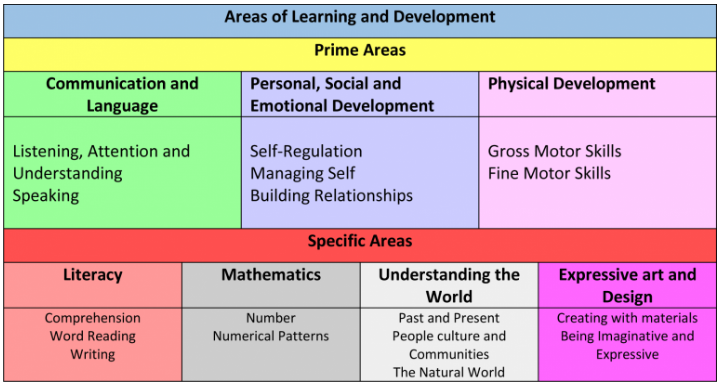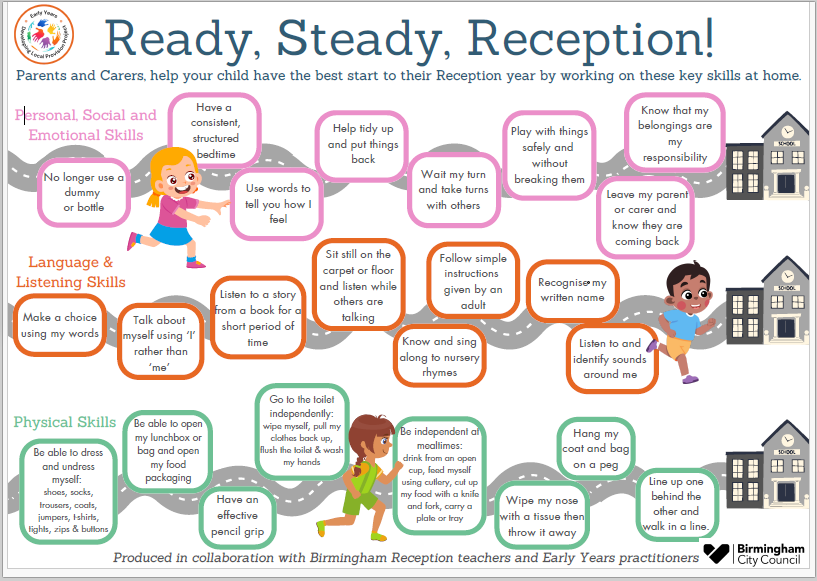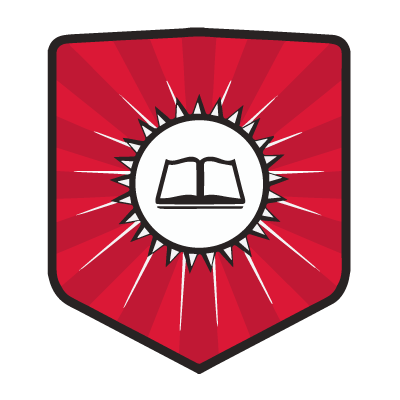EYFS
 A big, warm welcome to all of our new and existing children and families. We are delighted that your child will be starting full time school with us and we hope that you find this page useful. Over the next few weeks we will support your child in developing their personal, social and emotional development along with well being and behaviour and learning expectations, in order to ensure maximum progress can be made across all areas of learning. Here at St Saviour's, our aim is to give each child a happy, safe, positive and fun start to their school life in which they can build solid foundations on which to expand and develop their love of learning and coming to school. We help each child to recognise their own strengths and achievements through experiencing success and developing the confidence to work towards personal goals. We really look forward to working with yourselves and your children as they begin their exciting learning journey at 'big school!'
A big, warm welcome to all of our new and existing children and families. We are delighted that your child will be starting full time school with us and we hope that you find this page useful. Over the next few weeks we will support your child in developing their personal, social and emotional development along with well being and behaviour and learning expectations, in order to ensure maximum progress can be made across all areas of learning. Here at St Saviour's, our aim is to give each child a happy, safe, positive and fun start to their school life in which they can build solid foundations on which to expand and develop their love of learning and coming to school. We help each child to recognise their own strengths and achievements through experiencing success and developing the confidence to work towards personal goals. We really look forward to working with yourselves and your children as they begin their exciting learning journey at 'big school!'
We understand that our young children learn best:
- Though first-hand experience, play and talk.
- When they have the opportunity to lead their own learning as well as being led by a teacher.
- When they have opportunities to explore their environment actively, using all their senses.
- When they are encouraged, through discussion to reflect on and talk about their thoughts and actions-intrinsic motivation is a valuable tool.
- When the development of the whole child is considered.
- Where learning begins with what the child can do not what it can’t do!
- When learning is holistic and not compartmentalised under subject headings.
- A learning environment that is well planned, well organised, language rich, visually stimulating and provides the structure for teaching within which children explore, experiment, plan and make decisions for themselves, enabling them to learn, develop and make good progress.
The Early Years Foundation Stage Framework 2021
At St Saviour’s C of E Primary, we follow the EYFS framework 2021. Within this framework there 4 guiding principles that shape our practice.
- A unique child. Every child is a unique child who is constantly learning and can be resilient, confident and self-assured.
- Positive relationships. Children learn to be strong and independent through positive relationships.
- Enabling environments. Children learn well in enabling environments, in which their experiences respond to their individual needs and there is a strong partnership between practitioners and parents/carers.
- Learning and development. Children learn and develop in different ways and at different rates. The framework covers the education and care of all children in early years settings including children with special educational needs and disabilities.
At St Saviour’s, practitioners use ‘Birth to 5 Matters’ and ‘Development Matters’ to shape the curriculum and track children progress Both documents provide non-statutory guidance which supports all those working in early childhood education settings to implement the requirements of the Statutory Framework for the EYFS.
The EYFS framework includes seven areas of learning and development, all of which are seen as important and interconnected but three areas are seen as particularly important for igniting children’s curiosity and enthusiasm for learning, for building their capacity to learn and form relationships and thrive (DfE 2014: 1.3), they support children’s learning in all other areas, they are known as the prime areas.

-
Characteristics of Effective Learning
The EYFS also includes the characteristics of effective teaching and learning. The Reception teachers plan activities within the Reception classrooms with these in mind. They highlight the importance of a child’s attitude to learning and their ability to play, explore and think critically about the world around them.
The three characteristics are:
- Playing and Exploring – children investigate and experience things, and ‘have a go’
- Active Learning – children concentrate and keep on trying if they encounter difficulties, and enjoy achievements
- Creating and Thinking Critically – children have and develop their own ideas, make links between ideas, and develop strategies for doing things.
Our children learn through PLAY so it of great importance that the well-trained practitioners in our setting will support children by:
- Planning and resourcing a stimulating environment. Supporting children’s learning by facilitating play.
- Extending and supporting children’s spontaneous play.
- Extending and developing children’s language and communication in their play.
- Listening to all forms of children’s communication and their ideas and taking these into account when developing play and planning.
- Narrating children’s play. and asking questions about children’s play
- Give children and parents as much information about our school and the education we provide as possible.
- Develop a positive relationship between parents/carers and the school.
- Give children a secure and happy start to their education.

Induction programme
At St Saviour’s we place great importance on our induction programme.
Our aim is to:
- Give children and parents as much information about our school and the education we provide as possible.
- Develop a positive relationship between parents/carers and the school.
- Give children a secure and happy start to their education.
During this meeting the parents and children are introduced to key members of staff, school meal options, home visit times and dates and tour of their classroom and given an induction pack.

-
Transition
In the final term of Reception, the Year 1 teacher will meet with the Early Years staff and discuss each child's development against the Early Learning Goals to support a smooth transition to Year 1. This discussion helps the Year 1 teacher to plan an effective, responsive and appropriate curriculum that will meet the needs of all children.
At St Saviour’s C of E primary school, we believe ‘Together Everyone Achieves More.’
At the end of Reception, the class teacher assesses each child against the 17 Early Learning Goals (ELG) and comments on whether their development within each ELG is either on track or not on track. Practitioners may also identify those children who are working significantly below expected.
Progress tracking and evidence
Practitioners will observe, plan and assess on a daily basis. This may be done in a variety of ways but all evidence will be collated on SEESAW to create an individual learning journal for each child. Parents are encouraged to engage and comment on their child’s progress via SEESAW.
 SEESAW LOGIN
SEESAW LOGIN -
At 4 points during the academic year, practitioners will assess each child as to whether they are working ‘on track’ or ‘not on track’ to reach the ELG. Children who are not on track will be identified so practitioners can plan how to accelerate their progress.
-
RWI Phonics
A really useful video! PLEASE WATCH
"What if I was to tell you that a game of peek-a-boo could change the world?" asks seven-year-old Molly Wright, one of the youngest-ever TED speakers. Breaki...
